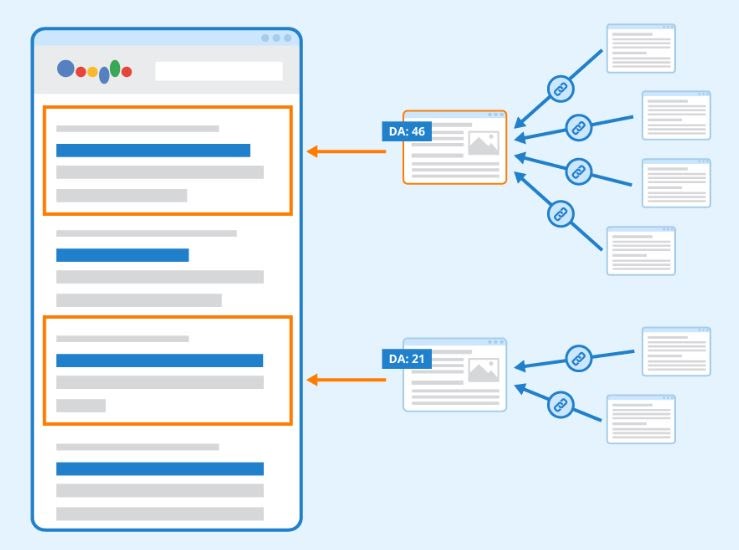In the digital age, every website competes for visibility. Two crucial components that affect a website's online presence are
website links vs search engine rankings. Both play a pivotal role in driving traffic and increasing a site’s relevance in search results. However, their mechanisms, impacts, and the roles they play are distinct. Understanding the differences between these two elements can help businesses, content creators, and marketers optimize their strategies for better online performance.
What Are Website Links?
Website links, also known as
backlinks or
inbound links, refer to hyperlinks from one website to another. These are essentially pathways that guide users from one piece of content to another, whether it be on the same website or across different domains. Backlinks are important because they act as votes of confidence or trust for the linked site. When a reputable site links to your content, it signals to search engines that your site is authoritative, relevant, and valuable.
Types of Website Links:
- Internal Links: Links that point from one page of a website to another page within the same domain.
- External Links: Links from your site to another website.
- Backlinks: Links from other websites pointing to your site, considered crucial for SEO performance.
How Website Links Impact SEO
Backlinks are a cornerstone of
search engine optimization (SEO). Search engines like Google use sophisticated algorithms to rank websites, and one of the primary ranking factors is the number and quality of backlinks pointing to a site. When a site earns backlinks from reputable and authoritative domains, it improves its search engine ranking.
However, not all backlinks are equal. Links from high-authority sites carry much more weight than those from low-quality or spammy websites. Furthermore, natural backlinks—links that are organically earned—are more valuable than those that are purchased or artificially placed.
What Are Search Engine Rankings?
Search engine rankings refer to a website’s position in the
search engine results pages (SERPs) when users enter queries related to a site’s content. These rankings are determined by complex algorithms that consider over 200 factors, such as content relevance, keyword optimization, website speed, mobile usability, and, as mentioned, backlinks.
How Search Engine Rankings Work
Search engines like Google aim to provide users with the most relevant and high-quality information based on their queries. To do this, their algorithms analyze websites for several key indicators:
- Content Relevance: Does the website content match the search query?
- Website Authority: Is the website considered trustworthy? This is often measured through backlinks.
- User Experience: Does the site load quickly, function well on mobile, and provide a good overall user experience?
- On-Page SEO: Are keywords optimized within the content, meta descriptions, headers, and URLs?
The combination of these factors determines where a website ranks for specific keywords and search terms.
Key Differences Between Website Links and Search Engine Rankings
| Aspect |
Website Links |
Search Engine Rankings |
| Definition |
Hyperlinks from one site to another |
Position of a site in search engine results |
| Role in SEO |
A key factor influencing search engine rankings |
The outcome of multiple SEO factors, including links |
| Types |
Internal, external, and backlinks |
Organic, paid, and featured snippets in SERPs |
| Direct Traffic Impact |
Can drive direct traffic from linking websites |
Generates organic traffic based on user search behavior |
| Algorithm Influence |
High-quality backlinks positively influence rankings |
Determined by over 200 factors, including backlinks |
Website Links as a Component of Search Engine Rankings
Though distinct, website links are a
crucial factor in determining search engine rankings. Quality backlinks, in particular, significantly influence where a site appears in SERPs. However, the impact of website links is just one piece of a larger SEO puzzle. Other factors, such as
content optimization,
site speed, and
user engagement, also play pivotal roles in boosting rankings.
Which Is More Important?
While both website links and search engine rankings are important, their importance depends on the specific goal of your online strategy:
- If your goal is to improve SEO and boost your website’s visibility, focusing on earning high-quality backlinks should be a priority. These will not only help improve your rankings but also drive referral traffic from other sites.
- If your goal is to maintain or improve your SERP rankings, you need to focus on multiple SEO strategies—optimizing content, enhancing site performance, and continuing to build a robust backlink profile.
Conclusion
Website links and search engine rankings are two intertwined aspects of SEO that can make or break a site’s online success. Backlinks act as endorsements that signal to search engines the credibility of your site, while search engine rankings determine how visible your site is to potential visitors. By understanding how these two factors interact, webmasters can craft strategies that boost traffic, improve visibility, and enhance overall site performance.
Ultimately, building high-quality backlinks while focusing on improving other SEO elements will help your site climb the search engine ranks and generate more traffic. Both website links and search engine rankings should be integral parts of any comprehensive digital marketing strategy.


